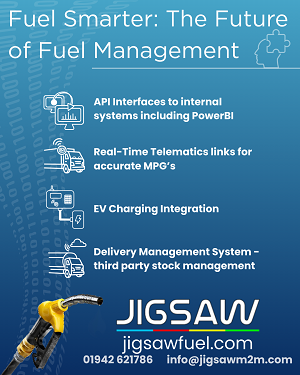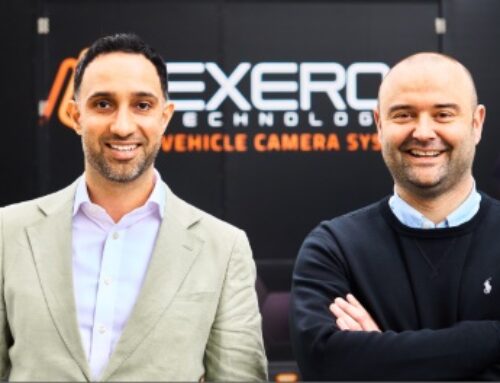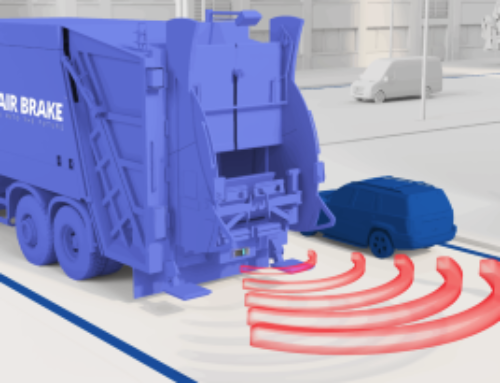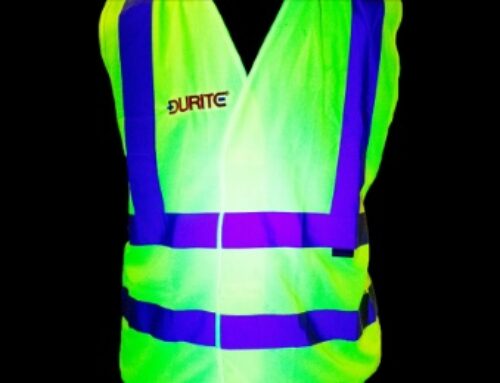DFDS slashes diesel use with Sunswap
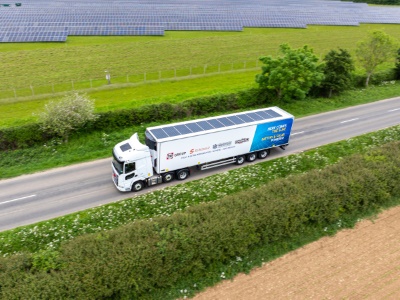 British manufacturer Sunswap, whose battery and solar-powered units now power fleets across Europe, has highlighted what it regards as a critical emissions blindspot in transport decarbonisation.
British manufacturer Sunswap, whose battery and solar-powered units now power fleets across Europe, has highlighted what it regards as a critical emissions blindspot in transport decarbonisation.
“While the transport industry debates EV transition timelines, a major emissions source is hiding in plain sight on our roads,” said Sunswap.
“The Transport Refrigeration Unit (TRU) – the box mounted on the front of refrigerated trailers – contributes far more to the environmental impact of operators’ fleets than its size suggests.”
Transport refrigeration plays a larger role in fleet emissions than many realise, says the firm.
“For the top UK retailers, companies with huge energy intensive operations, these units contribute: 2.5 per cent of their total Scope 1 CO2 emissions; 7.2 per cent of fleet greenhouse gas emissions; [and] a substantial portion of air quality pollutants, including up to 56 per cent NOx and 99 per cent of the particulate matter.
“These diesel-powered cooling systems operate continuously throughout the delivery cycle: at depots, during loading, and on the road.
“With approximately 40,000 refrigerated trailers operating across the UK, each burning thousands of litres of diesel annually, the collective opportunity for improvement is already available to the transport industry.”
With transport refrigeration units typically operating for 7-10 years before replacement, today’s technology choices will influence both operational expenses and emissions profiles well into the 2030s, says Sunswap.
“While diesel units offer proven reliability, they come with long-term exposure to fuel price uncertainty,” the firm continued.
With each refrigeration unit consuming thousands of litres annually, the cost adds up and so does the risk to regulatory changes.
“That is why forward-thinking third-party logistics firms are leveraging clean technology solutions today.”
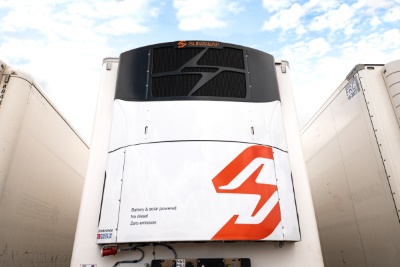 Battery and solar-powered systems from Sunswap are already being deployed by major operators across the UK and Europe such as DFDS, Greenyard, Birds Eye, TIP Group and more.
Battery and solar-powered systems from Sunswap are already being deployed by major operators across the UK and Europe such as DFDS, Greenyard, Birds Eye, TIP Group and more.
These systems match or exceed the performance of diesel units without burning a drop of fuel, the company says.
“For frozen goods [they can] provide 24+ hours of cooling on a single charge. For chilled goods, Endurance can operate for weeks, primarily powered by rooftop solar panels.”
DFDS, one of Europe’s largest shipping and logistics companies, has deployed Sunswap’s zero-emission units.
“We’re adopting these units as the only feasible zero-emission refrigeration option aligned to our fleet emission reduction targets,” said Matt O’Dell, managing director UK, DFDS.
DFDS calculated that with 10 units in operation, it would save approximately 500,000 litres of diesel over a ten-year period – equivalent to removing 895 tonnes of CO2.
Samworth Brothers, Müller, Culina Group, and numerous other operators have validated the technology across various routes and conditions, says Sunswap.
“Zero-emission refrigeration isn’t just environmentally sound – it also makes financial sense,” the company continued.
“Operators see up to 81 per cent reductions in operating costs compared to diesel units. The total cost of ownership over the unit’s lifetime is typically 20-30 per cent lower.
“When refrigeration units burn through thousands of litres of diesel annually – often hidden in overall fuel reporting and rarely tracked separately – these savings add up quickly.”
While complete fleet decarbonisation is complex and infrastructure-dependent, Sunswap says, refrigeration offers an immediate opportunity.
“Modern zero-emission refrigeration requires minimal operational changes, works with your existing vehicles and delivers immediate savings in costs and emissions.
“Fleet electrification doesn’t just mean tractor units, smart operators are already addressing the low-hanging fruit of refrigeration emissions – gaining both sustainability credentials and cost advantages over competitors.”





